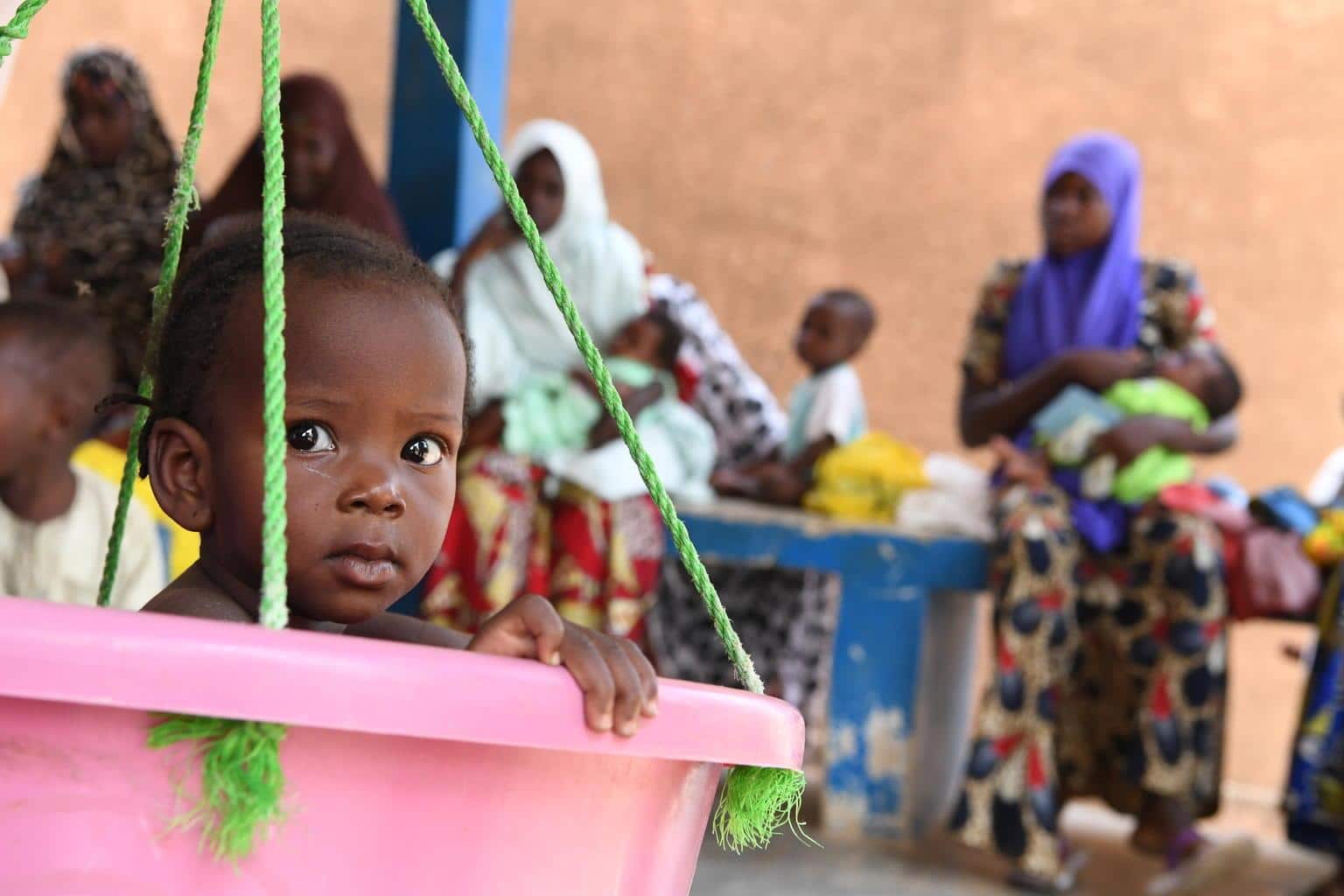DFID’s funding support enabled UNICEF to treat around 120,000 children affected by severe acute malnutrition in the country.
Malnutrition is a major threat to children’s health and development in Niger. More than 4 out of 10 children under 5 are stunted, robbing them of their full potential. Global acute malnutrition is consistently above the 10 per cent ‘alert’ level – even during times and in places where no nutrition-related emergencies have been declared. Children suffering from severe acute malnutrition are 11 times more likely to die than a well-nourished child.
Despite many efforts, severe acute malnutrition prevalence and burden remain extremely high. On average annually, 350,000 to 400,000 children under the age of five are admitted to nutritional programmes in Niger. As Niger’s population continues to grow, the burden of malnutrition will persist, even with significant efforts in treatment. A stronger focus on prevention is key to reversing malnutrition in the country.
Along with other funding partners, it also contributed significantly to the vitamin A and deworming campaign organized in the country, covering five regions including those in emergency situation (Diffa, Tillaberi and Tahoua), Maradi and Zinder which enabled to cover 81% of children 6-59 months in these 5 regions with vitamin A supplementation and 74% of children 12-59 months with deworming.

Malika, a 5 years old malnourished girl in a health center in Maradi, in the center of Niger.
17 days ago, the little girl was found on the street and was taken to the health center by the traditional chief of the village. Aicha, a nutrition specialist is now taking care of the little girl.
Malika is a very clever girl. Once she recovered, she remembered the name of her parents. Social workers are looking for the parents now, but in the meantime the girl may stay in the health center and Aicha is taking care of her as if it is her own baby.

Anifa, a 2 years old girl in a health center in Maradi, in the center of Niger. The little girl is recovering from malnutrition. Biba, a 35 years old mother of 8 children didn’t have enough milk.

Women are made aware of the importance of breastfeeding, in Zengon-Bougage, a village in the center of Niger.

Mothers with their babies waiting to be weighed and measured in a health center in Maradi, in the center of Niger.
Malnutrition is not just about food, or just about health care, but is an issue that requires action from different angles. That is why UNICEF and its partners are helping Niger develop a multi-sectoral nutrition response. UNICEF is working to build political commitment among government and partners to reduce stunting and other forms of undernutrition; support the design and implementation of comprehensive and effective national policy and programmes; help strengthen the capacity of community workers; promote multisectoral delivery of services and supply, including the provision of ready-to-use therapeutic food.


